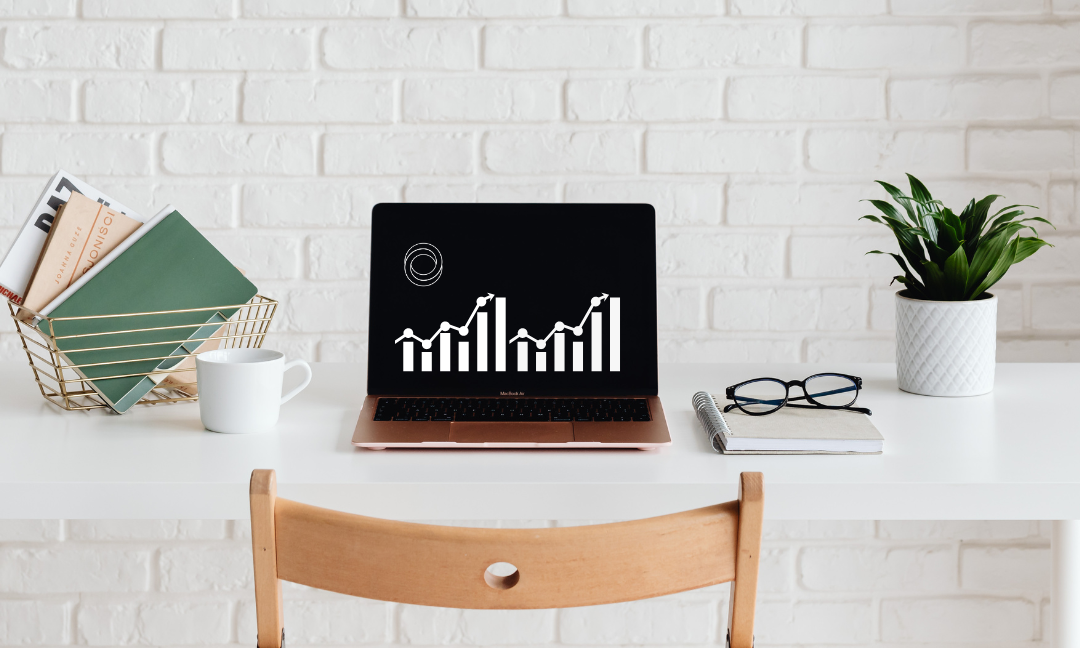Digital marketing has become an essential part of running a successful business. Implementing a solid digital marketing strategy helps to enhance products and services offered by a business, boosts brand awareness, helps to achieve more conversions, and ultimately helps to generate higher profits for businesses of all sizes.
However, what a lot of business owners don’t know is that digital marketing needs to be measured and tracked regularly in order to achieve optimum results and to determine whether their marketing strategies are working for their business.
Throughout this blog, we will discuss the digital marketing KPIs, or Key Performance Indicators, that businesses can use to measure their success and the tools they can use to do it.
How To Measure and Track Your Marketing
Website Traffic
A given, measuring and tracking website traffic is an important KPI to keep track of. When tracked correctly, website traffic metrics can provide insight into how many website visitors you have in a certain period of time, where they are coming from, what pages they are viewing the most on your website, and how long they are staying on your website for.
Tracking these insights can help you to determine how your website is performing, what changes need to be made in order for it to perform better, and can even help you with determining what products or services to boost due to their page popularity.
You can even go as far as seeing your sites ‘acquisition’, which details exactly how your website visitors find and reach your site as well (e.g. organic, direct, social media, paid, emails, etc.) – which is good to determine if other forms of marketing you are doing for your business are working. This then allows you to invest more time and resources into the channels that you know are working to bring you traffic.
Hot Tip:
Tool to Use: GA4 Analytics – It offers in-depth insights into website performance, audience demographics, and user behaviour.
Search Engine Ranking
Search engine rankings directly influence visibility and organic traffic acquisition. A higher search engine ranking means greater chances of attracting potential customers, increasing brand exposure, and outperforming competitors. Monitoring search engine rankings also helps you identify areas on your website to optimise.
Hot Tip:
Tool to Use: SEMrush, AHREFS or MOZ– It gives a detailed analysis of traffic acquired from search engines, the position of keywords, backlinks, and other factors that can affect rankings.
Conversion Rate
Your conversion rate is the percentage of people who take a specific action from your marketing be it your website, email marketing or social media.
By measuring your conversion rate, you can see how effectively your website influences visitors to take a particular action. If your conversion rates are low, you can improve them by making changes to the website’s design, content and improving the overall user experience. Alternatively, you can also run paid advertising campaigns (Facebook Ads, Google Ads, LinkedIn Ads), which will help your business target a specific audience. This can increase the chances of attracting your ideal client to your website, and in turn, boost your conversion rate.
Hot Tip:
Tool to Use: GA4 (Google Analytics 4) – It can track organic website traffic by using a combination of data streams from various sources, including HTTP referrers and UTM parameters, to identify and attribute traffic that originates from search engines and other non-paid sources.
Social Media Engagement
Social Media Engagement is also a strong KPI to measure and track. Actions in response to your content, such as ‘Liking’, ‘Sharing’, and ‘Commenting’ are all good ways to understand how engaged your audience is. A high engagement rate means that your prospects are interested and engaged with the content you are putting out, and this lets you know what your followers want to see more of on your social media pages. You can then use this data to improve your overall marketing strategy.
Hot Tip:
Tool to Use: Meta Business Suite via Facebook provides a comprehensive view of your content’s performance, including reach and impressions. It can also track follower growth and analyse demographics and user behaviour. You can also use Insights on Instagram and over at LinkedIn
Start Tracking Your Marketing to Improve Performance
Measuring and tracking marketing metrics and insights is essential when doing any form of marketing. Measuring can help you to identify your strengths, your weaknesses, and where other areas are for improvement.
By regularly tracking and analysing your marketing, you can make data-driven decisions, optimise your marketing efforts, and achieve your marketing goals.
If you need guidance on tracking these KPIs and ways to improve your overall marketing performance, please feel free to reach out.

